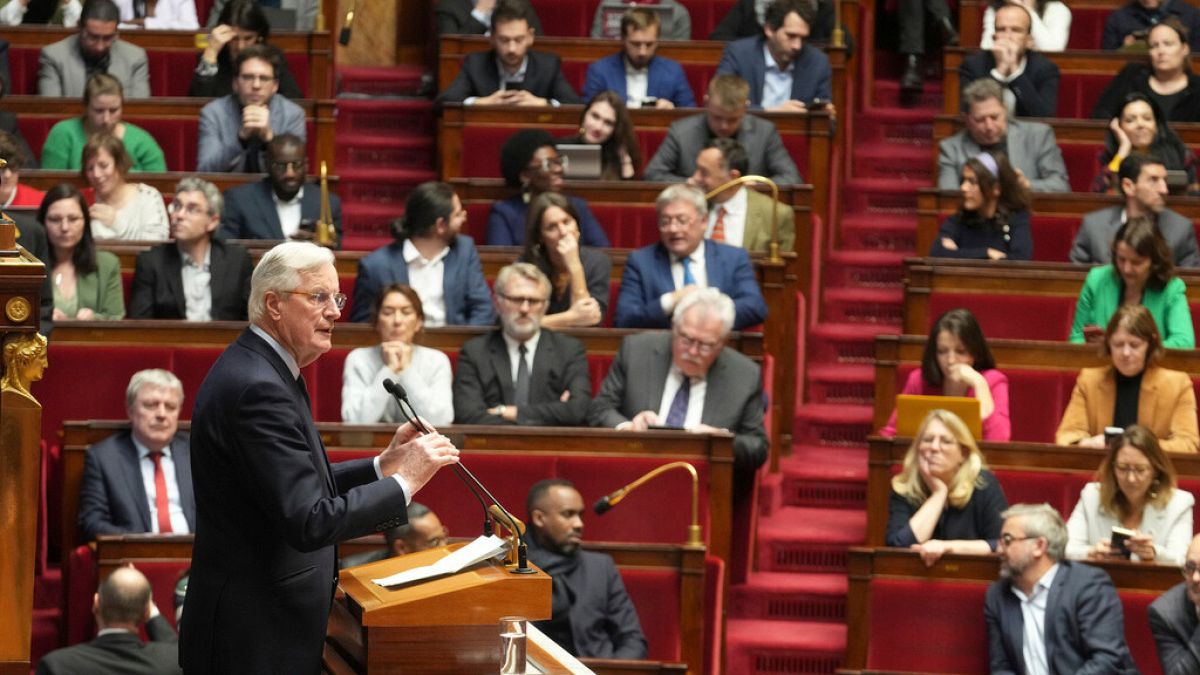France’s Prime Minister Michel Barnier faces a no-confidence vote after he forced through a controversial draft budget without parliamentary approval.
French Prime Minister Michel Barnier has said it is possible he may survive a no-confidence vote on Wednesday which is all but certain to oust his minority government.
The motion was tabled by opposition parties after Barnier pushed through his contentious social security budget without a parliamentary vote on Monday.
Opposition lawmakers from the left and the far-right, including Marine Le Pen and her National Rally (RN) party, have vowed to topple Barnier, and have the numbers to do so.
In an interview with French media on Tuesday night, Barnier said the no-confidence vote could make “everything more difficult and serious … in economic and social terms”.
Regarding his own fate, he said: “It is difficult, but the stakes are not impossible.”
“It depends on the MPs. Each of whom has a responsibility to the French people, to the voters in his or her constituency, and also to France, which is going through a rather serious period,” Barnier said.
“I think that there will be this reflex of responsibility where, beyond the political differences, the divergences, the contradictions that are normal in a democracy, we say to ourselves that there is a higher interest,” he added.
Barnier also argued he had not been “given the runaround” by Le Pen during negotiations over the social security budget. The French PM had tried to appease the RN at the last minute by making concessions such as scrapping electricity price hikes, but it was not enough to prevent Le Pen’s party and a leftwing alliance tabling no-confidence motions.
Le Pen criticised the budget as “dangerous, unjust and punitive”. It was prepared by Barnier’s government urgently after he was appointed by French President Emmanuel Macron in September, following snap elections that resulted in a hung parliament.
The budget aimed to reduce France’s fiscal deficit from an estimated 6% of its GDP to 5% next year by cutting €40 billion in public spending and raising taxes by €20 billion.
If the no-confidence vote succeeds, it would be the first time in more than 60 years that a French government has been toppled, and make Barnier the country’s shortest-serving PM since 1958. Macron could ask Barnier to continue in a caretaker role as he looks to appoint a new prime minister, which would be very unlikely to happen before early 2025.
The political instability has dented France’s stock market in recent weeks and could push up French interest rates, compounding its already colossal debt.
The no-confidence vote, which is due to start at 4 pm local time (CET) on Wednesday, will be closely watched across the eurozone, where there is already considerable concern over Germany’s political crisis and upcoming elections in February, and the return of US President-elect Donald Trump to the White House next month.

